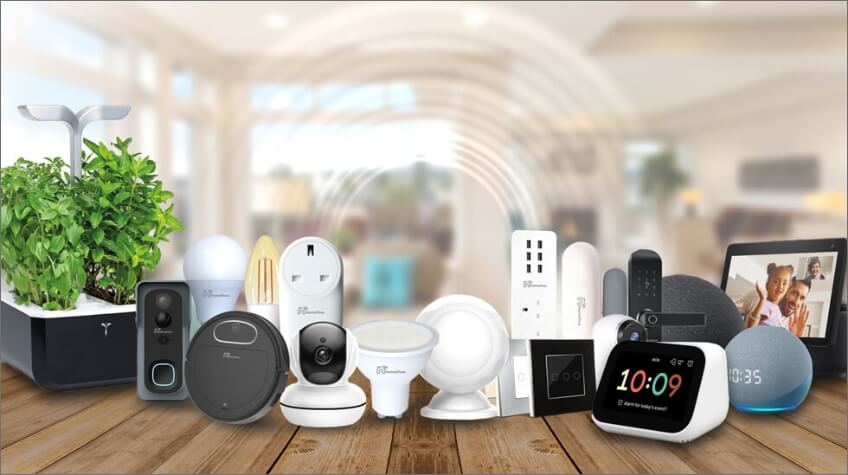Introduction
The Saudi Arabia Smart Home Appliances Market is witnessing rapid evolution, driven by a fusion of advanced technologies, shifting consumer expectations, and strategic national policies. With an expanding urban population and increased tech-savviness among consumers, smart home appliances are no longer a futuristic luxury but a present-day necessity. The Kingdom's commitment to digital transformation under its Vision 2030 blueprint is catalyzing the widespread adoption of connected and AI-driven home solutions. Valued at USD 2,031.41 million in 2024, the market is expected to soar to USD 8,565.89 million by 2030, reflecting an impressive CAGR of 27.10%.
These smart solutions—ranging from AI-enabled air conditioners to voice-assisted vacuum cleaners—are redefining convenience, efficiency, and sustainability in everyday life. As more households embrace automation, the market is set to emerge as a significant contributor to Saudi Arabia’s non-oil economic growth.
Industry Key Highlights
Market Size (2024): USD 2,031.41 Million
Forecasted Market Size (2030): USD 8,565.89 Million
CAGR (2024–2030): 27.10%
Fastest-Growing Product Segment: Smart Air Conditioners
Leading Region: Eastern Province (including Dammam & Khobar)
Dominant Drivers: AI-Powered Automation, Smart Energy Management, Remote Monitoring Systems
Key Influencer: Vision 2030’s emphasis on digital transformation and sustainable living
Download Free Sample Report - https://www.techsciresearch.com/sample-report.aspx?cid=7665
Market Drivers
1. Surge in AI-Powered Home Automation
Artificial Intelligence has transitioned from novelty to necessity within the Saudi smart appliance ecosystem. AI enables appliances to learn user behavior, predict preferences, and deliver personalized services that optimize energy consumption. Smart thermostats adjust room temperatures based on user presence; refrigerators track grocery usage; and lighting systems adapt based on natural light availability. These innovations enhance convenience, reduce energy bills, and align with national sustainability goals.
2. Rise in Demand for Remote Monitoring and Security Systems
Modern Saudi families, particularly in urban areas, are increasingly relying on smart surveillance systems to secure their homes. From doorbell cameras to motion sensors, remote monitoring tools are integrated into broader smart home platforms, allowing real-time surveillance and alerts on mobile devices. This trend addresses growing safety concerns and empowers homeowners with control and peace of mind—even when they're away.
3. Energy Efficiency and Environmental Sustainability
With electricity consumption among the highest globally, energy efficiency has become a national imperative. Smart appliances equipped with power-saving features are gaining popularity, especially amid government-led energy-saving initiatives. Products that reduce carbon footprints and promote sustainable energy usage are seeing rapid adoption.
4. Tech-Savvy Demographics and Rising Disposable Income
The Kingdom’s young, educated, and tech-friendly population, combined with a rising middle class, provides fertile ground for smart home technologies. Consumers are increasingly opting for devices that offer enhanced convenience and status, contributing to robust demand growth.
5. Government Support and Vision 2030
The Vision 2030 strategy acts as a catalyst for market growth. With dedicated investments in smart cities like NEOM and heavy focus on digital infrastructure, the Saudi government is fostering a technology-driven ecosystem that directly benefits the smart appliance segment.
Emerging Trends
1. Integration of IoT in Smart Appliances
The fusion of Internet of Things (IoT) and smart appliances is creating a seamless digital home environment. Appliances now communicate with each other, learning and adapting to usage patterns for a more intuitive user experience.
2. Voice-Enabled Assistants and Automation Hubs
With the widespread adoption of digital assistants like Alexa and Google Home, Saudi households are shifting toward fully voice-controlled living spaces. Smart hubs centralize operations, enabling holistic automation of lighting, temperature, security, and entertainment systems.
3. Growth in Smart Kitchen Appliances
Consumers are adopting smart kitchen gadgets that offer meal recommendations, track expiration dates, and sync with grocery apps. These appliances not only save time but also reduce food wastage.
4. Eco-Friendly Innovations
There is growing interest in appliances that use natural refrigerants, reduce water usage, and comply with global eco-labels. These innovations resonate with both environmentally conscious consumers and government energy-saving mandates.
5. E-Commerce and Omnichannel Retailing
The rise of digital platforms has made it easier than ever for consumers to research, compare, and purchase smart appliances. Brands are leveraging omnichannel strategies to improve customer reach and retention.

Market Segmentation
By Product:
Air Conditioners (Fastest Growing)
Refrigerators
Washing Machines
Smart Televisions
Vacuum Cleaners
Others
By Distribution Channel:
Online
Multi-branded Electronic Stores
Supermarkets/Hypermarkets
Others
By Region:
Eastern (Fastest Growing)
Western
Central
Southern
Northern
Competitive Analysis
Saudi Arabia’s smart home appliance market is characterized by intense competition and rapid innovation. Key players are continuously investing in R&D and strategic alliances to enhance their product portfolios and capture market share.
Key Companies Include:
Haier Inc – Known for wide range and energy-efficient appliances.
LG Electronics Inc – Pioneering AI-enabled products.
Samsung Electronics Co., Ltd – Leader in smart connectivity and integration.
Arçelik A.Ş. – Emphasis on eco-friendly technologies.
Robert Bosch GmbH – Offering durable and innovative appliance solutions.
Koninklijke Philips N.V. – Leading in smart lighting and kitchen gadgets.
Motorola Mobility LLC – Growing in smart surveillance.
Midea Group – Strong in HVAC and air purification.
Dreame – Innovative smart vacuum cleaners.
Matic Robots Inc – AI-driven robotic cleaning solutions.
10 Benefits of This Research Report
Comprehensive market size analysis with historical and forecast data.
Clear segmentation by product, region, and distribution channel.
In-depth study of current and future trends.
Identification of key market drivers and challenges.
Strategic insights for manufacturers and retailers.
Competitive landscape with profiles of major players.
Regional analysis to uncover local opportunities.
Forecast modeling based on real-time data.
Investment planning tools for stakeholders.
Customization options for industry-specific applications.
Future Outlook
The future of the smart home appliances market in Saudi Arabia appears highly promising. As technological innovation continues at a brisk pace and consumer awareness around energy savings and convenience grows, adoption is expected to deepen across urban and semi-urban areas alike. Strategic collaborations between global tech firms and local manufacturers are likely to emerge, driving down prices and increasing product accessibility.
Moreover, as smart cities like NEOM begin to take shape, the demand for interconnected home systems will surge. The market will also benefit from policy support, digital education campaigns, and expanding e-commerce. By 2030, Saudi Arabia is poised to become a regional leader in smart home adoption, setting benchmarks in sustainable, secure, and intelligent living.
Contact Us-
TechSci Research LLC
420 Lexington Avenue, Suite 300,
New York, United States- 10170
M: +13322586602
Website: www.techsciresearch.com






